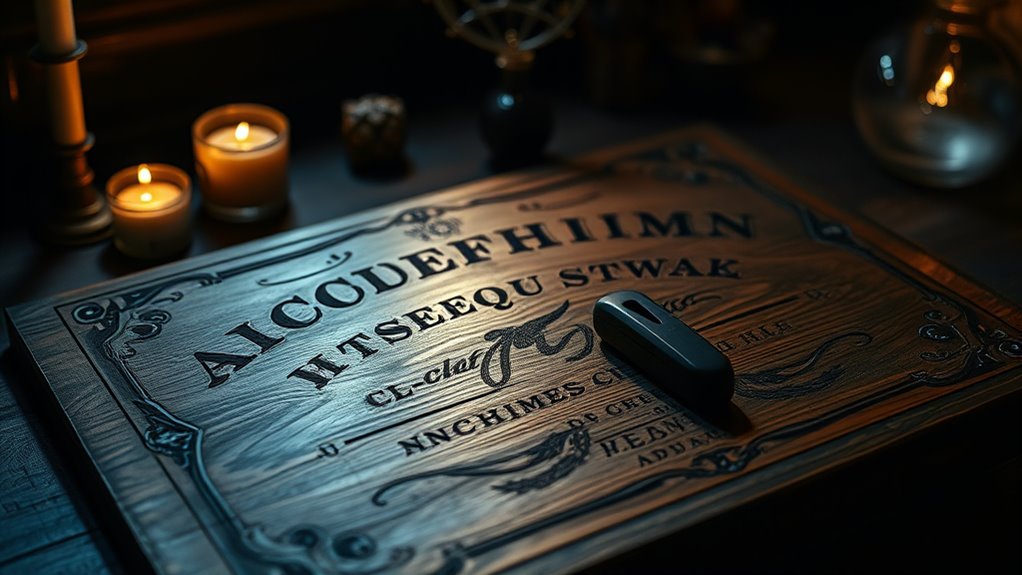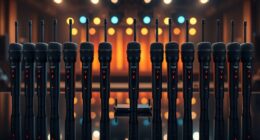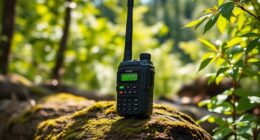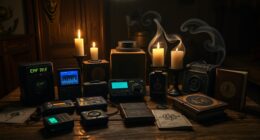Many fears about Ouija boards being evil come from cultural stories, movies, and folklore that sensationalize their power. In reality, the board is simply a tool influenced by your subconscious—known as the ideomotor effect—and doesn’t hold any inherent malevolence. Media often paints it as a gateway to dark spirits, but scientific perspectives show it’s more about psychology than spirits. If you want to understand how these perceptions develop and find reassurance, keep exploring further.
Key Takeaways
- The belief that Ouija boards are inherently evil is based on cultural myths, not scientific evidence.
- Movements of the planchette are often caused by the ideomotor effect, reflecting subconscious cues.
- Media, folklore, and movies have sensationalized Ouija boards as portals to malevolent spirits, fueling fear.
- The board itself does not possess spiritual or malevolent powers; it functions as a tool for communication and self-reflection.
- A rational understanding and awareness of cultural influences can help diminish unwarranted fears about Ouija boards.
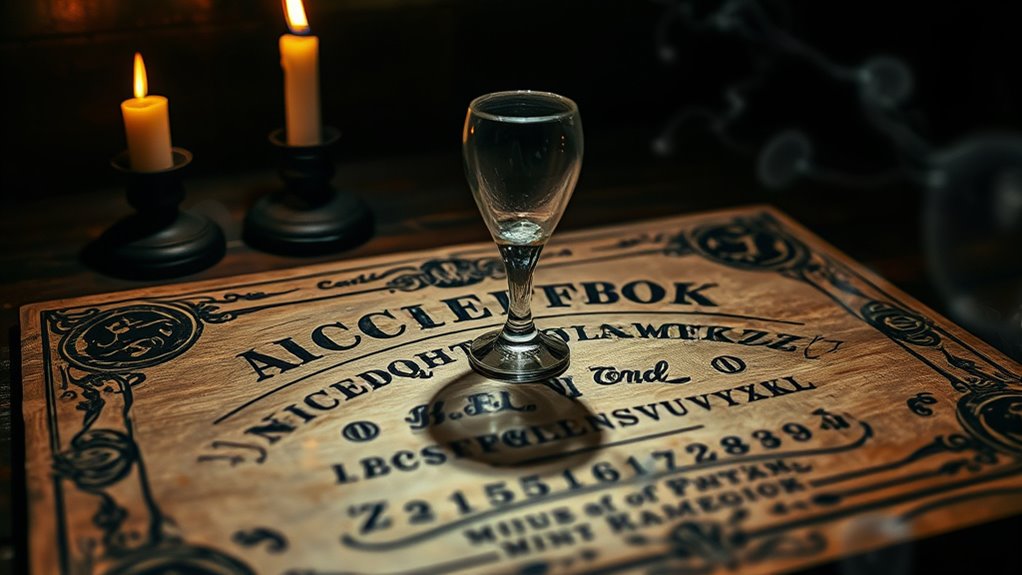
Many people believe that Ouija boards open doors to malevolent spirits, and there’s good reason to be cautious. These fears often stem from spiritual warnings passed down through generations, warning us of the dangers lurking beyond our understanding. However, many of these concerns are rooted in cultural misconceptions rather than factual evidence. Stories of dark encounters and sinister happenings have been sensationalized over time, fueling a narrative that the Ouija board itself is inherently evil. In reality, many experts argue that the board is simply a tool for communication, much like any other device used to explore the unknown. The fear surrounding Ouija boards often comes from a misunderstanding of how they work and what they represent.
People tend to project their fears onto the board, imagining it as a gateway for spirits to enter our world. This kind of thinking is reinforced by movies, books, and folklore, which portray Ouija boards as dangerous portals. But in practice, most users find that the movements of the planchette are influenced by subconscious cues—a phenomenon known as the ideomotor effect. Instead of opening doors to spirits, the board can serve as a mirror for your own thoughts and emotions. When you understand this, the spiritual warnings many associate with the Ouija board start to lose their power. It’s important to recognize that much of the fear is culturally ingrained, shaped by stories designed to scare or entertain, rather than by any real spiritual threat.
Additionally, understanding the psychological effects of using such tools can help demystify the experience and reduce unwarranted fears. Cultural misconceptions often paint Ouija boards as evil artifacts, reinforcing the idea that they attract negative energies or malevolent entities. These beliefs can lead to unnecessary anxiety or even avoidance of a tool that, for many, is simply a way to explore their curiosity about the unknown. If you approach a Ouija board with an open mind and a healthy skepticism, you might see it differently. It’s not inherently dangerous; it’s a reflection of human psychology and cultural narratives. Recognizing the power of fear as a predominantly cultural construct can help individuals approach the board with a more rational perspective. While it’s wise to be respectful and cautious, especially if you’re feeling uneasy, it’s equally important to differentiate between superstitions and scientific understanding. The truth is, the power of fear often comes from within us, shaped by cultural misconceptions more than any actual spiritual danger lurking in the game.
Frequently Asked Questions
Can Ouija Boards Be Used Safely for Entertainment?
You can use Ouija boards safely for entertainment if you understand the paranormal misconceptions and cultural stigmas surrounding them. Keep the session lighthearted, set clear boundaries, and approach it with a skeptical mindset. Avoid taking it too seriously or expecting definite answers. By doing so, you minimize risks and enjoy the experience responsibly, recognizing that many fears are rooted in myths rather than actual danger.
Are There Scientific Explanations for Responses From Ouija Boards?
You might wonder if there are scientific explanations for Ouija board responses. Researchers suggest psychological explanations, like the ideomotor effect, where your subconscious movements influence the planchette. Cognitive biases, such as confirmation bias, also shape how you interpret responses, making them seem meaningful. These factors show that responses often stem from your own mind rather than supernatural forces, highlighting the power of psychology in understanding the board’s behavior.
How Do Cultural Beliefs Influence Perceptions of Ouija Boards?
You might not realize that over 60% of people worldwide believe in spirits or supernatural forces, shaping how they see Ouija boards. Cultural narratives and belief systems heavily influence perceptions—some see them as portals to the afterlife, others as mere games. Your background and community teach you what to fear or trust, making your understanding of Ouija boards deeply personal and varied, based on the stories you’ve been told.
What Mental States Might Affect Ouija Board Readings?
Your mental state heavily influences ouija board readings. Psychological suggestibility makes you more prone to influence by your expectations or beliefs, shaping the movement of the planchette. Emotional states like fear, excitement, or anxiety can also sway the experience, causing you to interpret movements or responses differently. Be aware that your current feelings and suggestibility can profoundly impact the results, making it essential to stay calm and skeptical during the session.
Are There Legal Restrictions on Owning or Using Ouija Boards?
You might wonder about legal restrictions or ownership regulations for Ouija boards. Generally, there are no federal laws banning ownership or use in most places. However, some states or countries have specific restrictions, especially if the board is marketed for spiritual or religious practices. It’s best to check local laws before purchasing or using one, ensuring you follow any regulations and avoid legal issues.
Conclusion
Remember, curiosity killed the cat, but it also teaches us. Ouija boards aren’t inherently evil; fear often fuels the myths around them. When you approach with respect and understanding, you hold the power to demystify what’s real and what’s superstition. Don’t let fear be your guide—question, learn, and see things for what they truly are. After all, knowledge is the best shield against unfounded fears.
